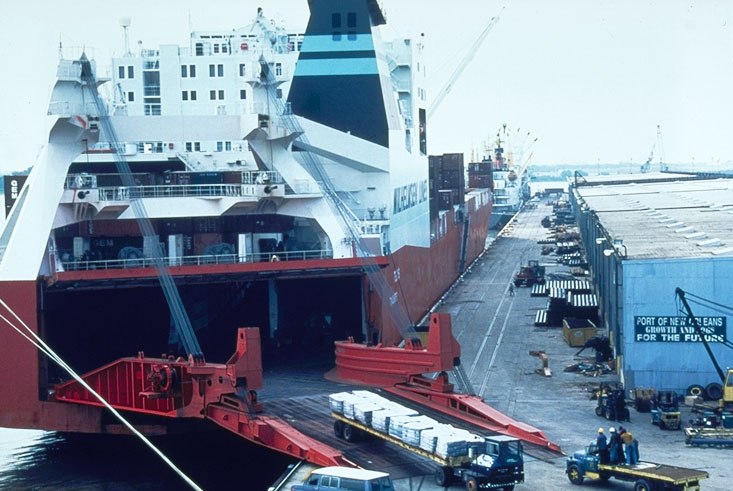Prices

December 7, 2014
Congestion Still a Problem at US Ports
Written by Sandy Williams
Ports around the U.S. report steel shipments continue to be strong but congestion at the terminals remains a problem.
In the Port of New Orleans iron and steel imports totaled 2.2 million tons in the first eight months of this year—up 84.8 percent from the same period in 2013.
“We don’t have November numbers as of yet, but steel has been strong all year, along with project cargo for plant construction and expansions mostly on the Lower Mississippi River due to affordable natural gas prices,” reported Matt Gresham, Director of External Affairs at the Port of New Orleans. Gresham noted that five steel ships were in port as of last Thursday.
 Steel imports are at record levels at the Port of Houston. Year-to-date statistics as of October 14, show steel imports though the Houston terminals increased by 42.9 percent to 5.3 million tons. The Port of Houston Department of Trade Development told SMU, “This year has been an incredible year for steel. We will come close to or exceed our previous record from 2008.”
Steel imports are at record levels at the Port of Houston. Year-to-date statistics as of October 14, show steel imports though the Houston terminals increased by 42.9 percent to 5.3 million tons. The Port of Houston Department of Trade Development told SMU, “This year has been an incredible year for steel. We will come close to or exceed our previous record from 2008.”
Houston does not expect steel imports to continue to flood the port next year due to “new mills coming online in our area that produce our main steel import, OCTG (tubular products for oil production).”
The Port of New York and New Jersey handled 308,805 containers in October, surpassing the previous monthly record of 306,052 in August 2013. Operations have been relatively smooth with intermittent congestion. Plans are being made to improve snow removal to prevent a repeat of cargo delays experienced during last year’s harsh winter. The Council on Port Performance is also making charges associated with containers and chassis more predictable should the terminals be closed due to adverse weather.
The Port of Los Angeles is experiencing congestion with ships, including break bulk/steel ships, having to wait a few days at anchor before berthing. A spokesperson at the port reported slow truck turn times due to congestion at the container terminals. Volumes currently are somewhat lighter due to the seasonal slack period for trans-Pacific trade but are expected to pick up again in January before the Chinese New Year celebrations begin in February. Steel import statistics were not available from the port which only follows container statistics.
The contract negotiations between the International Longshoremen and Warehouse Union and the Pacific Maritime Association have been blamed for the congestion at ports on the West Coast. The PMA says the ILWU began work slowdowns in October, a claim refuted by the ILWU who blame chassis problems and overwhelming shipments for the port congestion.
The ILWU has been working without a contract since July 1. The ILWU and PMA resumed negotiations on Dec. 2 following the Thanksgiving break. An ILWU caucus is scheduled for the week of Dec. 15 to present contract terms to the membership. If a negotiation terms are considered satisfactory, a tentative contract would be offered to union members for a vote. If not, the parties will return to the negotiating table, extending the port slowdowns into January.







